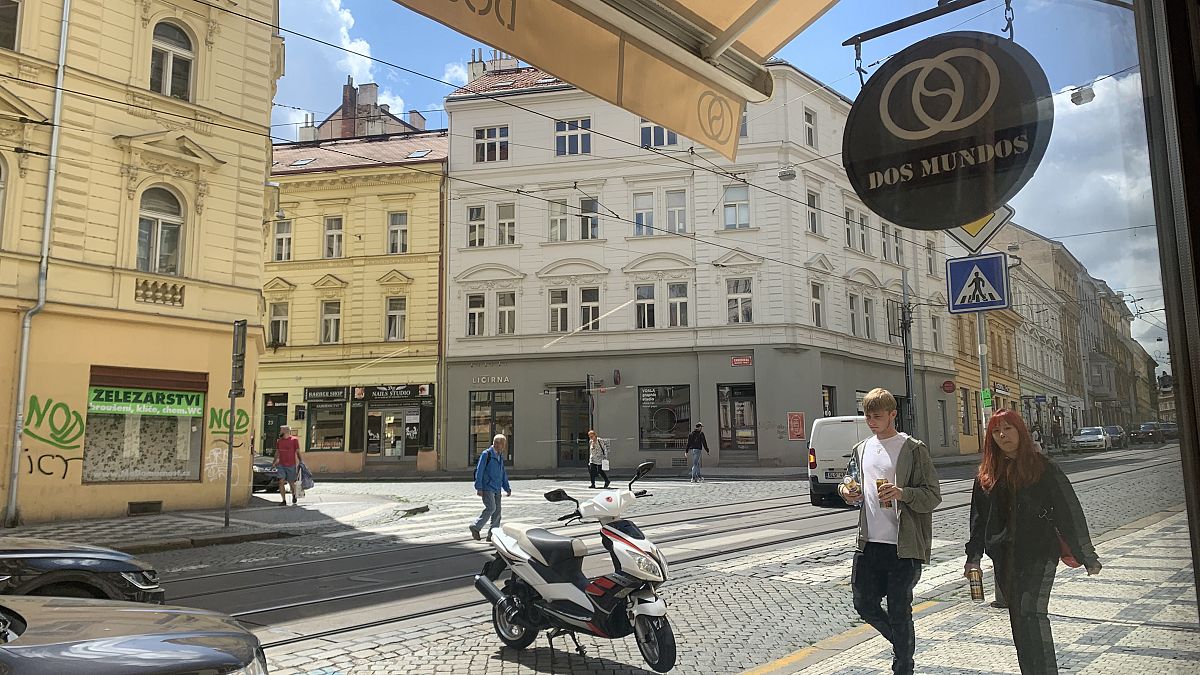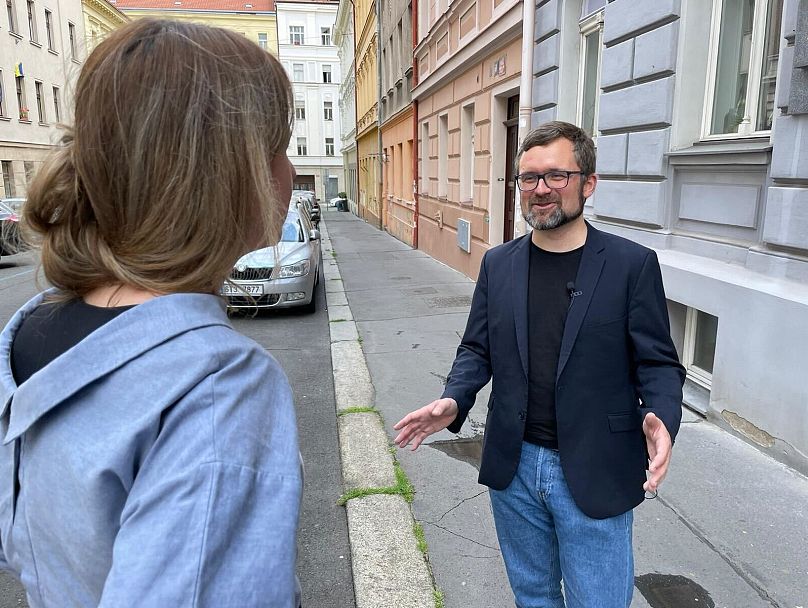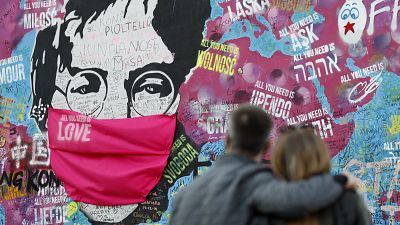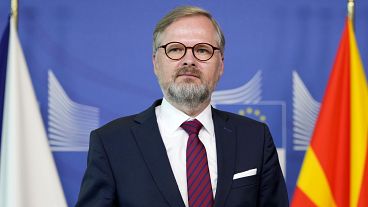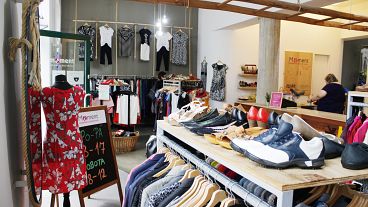Euronews correspondent Méabh Mc Mahon reports on her trip to Prague as the Czech Republic takes over the EU Council presidency this month.
Euronews correspondent Méabh Mc Mahon reports on her trip to Prague as the Czech Republic takes over the EU Council presidency starting this month.
"I am sorry, I do not know" was the repeated response to my question did you know that the Czechs are currently presiding over the European Union?
I am in the Letná district of Prague – a trendy neighbourhood where according to Jiri, my local camera man "everyone wants to live."
There I meet Mikulas Peksa, a European lawmaker mostly spotted in Strasbourg or Brussels, but as it's Friday, the young Pirate Party politician is working from home.
He tells me the Czech presidency will give a big boost to his country, still bruised by the bad press generated by former prime minister and billionaire, Andrej Babis.
"Usually if you live in a country like Czechia is, you expect the others like the US, Germany, France, Russia to decide your fate, and you see the big things in the media, but now it is the Czechs and our Prime Minister is the one participating in this theatre and that is actually interesting I would say," says Peksa.
Political scandals
Most people I speak to about politics, whether local or European, raise their eyes. Their trust in authority seems thin. The former premier who was in power from 2017 until 2021 faces charges over European Union subsidy fraud involving his farm outside Prague.
When a new coalition was sworn in back in December with five parties ranging from conservative to pirates, they promised to root out corruption.
But on the eve of their EU presidency, a scandal stirred which forced the minister for education Petr Gazdík to step down.
He was a member of the Mayors and Independents Movement (STAN), the second largest of the five parties forming the national governing coalition.
"The scandal naturally weakened the STAN (Mayors and Independents) party quite a lot, other coalition parties were affected only slightly, but coalition government still stands firm," Dr Petr Just from the Metropolitan University Prague tells me the government has a comfortable majority but if STAN withdrew, it would lose that support.
The head of STAN is Vit Rakušan - the deputy prime minister and interior minister. I sit down with him for an informal dinner along with a few other Brussels-based journalists.
"We have a lot of big problems. Inflation is one of the highest in the EU," Rakusan says. The former mayor tells me all the topics on his plate for the next six months.
With so much to fix at home from rising gas, electricity, water and food prices, how will he have time to lead Europe I wonder, and how do his voters feel?
"You can sense some disappointment with the EU here," he says.
"Czech business, Czech people - they don’t feel the impact on their lives...there are too many rules and too much bureaucracy. It would be easier if we were in the eurozone".
The interior minister says he will try to bring results to the people at home and abroad - like getting Croatia, Romania, and Bulgaria to join Schengen.
"The door is still closed and people in these countries are losing hope, they are losing trust in the EU," he adds.
Petr Just says that people in general are aware of the EU Council presidency but that they do not see it as important.
"It follows from the general approach of the Czech society towards the EU, which is quite "cold" and distant. People do not know much about how the EU works," he adds.
First priority remains Ukraine
Beyond global warming, migration and skyrocketing inflation - the first priority of the Czech presidency will be Ukraine - trying to stop the war and helping those impacted.
With similar cultures and languages, the Czech Republic is a host country for the first time. Over 300,000 Ukrainians have come - mostly women and children.
The dilemma now I am told, is whether to 'integrate them' or just 'adapt them'.
"Ukraine wants them back when it is safe for them to go back," Rakusan says, adding that many have found work and have learned to speak Czech "as it is so similar to Ukrainian."
I visit the Russian embassy in Prague where the lights are on and there is somebody home, but the splendid mansion perched by a park is surrounded by police tape from when locals painted the entrance in fake blood.
"After the Russian attack on Ukraine, people started to worry more about defence and security," Just says adding how the popularity of NATO and Czech NATO membership has increased rapidly since the war in Ukraine.
